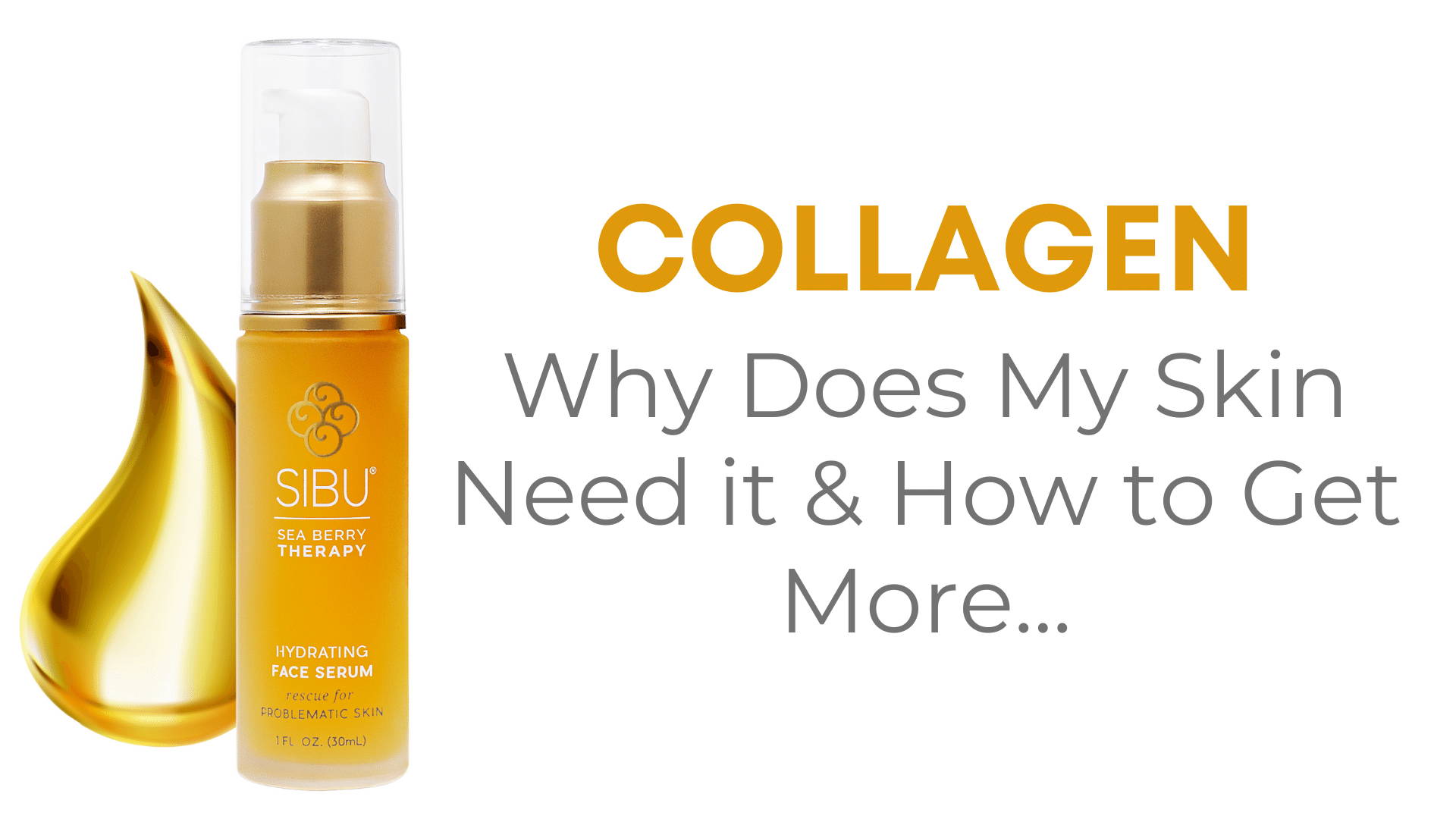What is the Function of Collagen for My Skin’s Health?
No matter what stage of your skin, whether if that's focusing on preventing premature aging or diminishing existing wrinkles, there is one critical compound that will play a vital role in your success, or failure.
If you're catching the tail end of your favorite beauty blogger's video or reading about it in the latest Marie Claire, chances are you’ve already heard about this thing called “collagen.”
Even though you recognize the word, and may even associate it with sagging skin (you’d be right!), do you really know what collagen is?… Why exactly do you need it for your skin, and more importantly, how can you get more of it?
Let’s delve a bit deeper into this skin care mystery that once solved, can create astounding benefits in the health and youthful glow of your skin.
What is collagen and what does it do?
Collagen is made up of strings of protein called amino acids which helps to keep the skin youthful, muscles and bones strong, and digestive system working in good shape.
When it comes to amounts of this protein we have inside us, collagen is at it’s the highest when we are born and throughout our childhood, but naturally decreases as we age.
It’s this decrease in collagen that is responsible for visible signs of aging such as sagging skin, wrinkles, and even weakened bones. Keep in mind however that even though we naturally lose collagen as the years go by, other lifestyle factors such as a diet high in sugar, extended sun exposure, and smoking, are all contributors to a decrease in collagen as well.
So how do we increase the collagen in our bodies (namely our skin) and start to reverse this degenerative process? It’s a lot easier than you may think, and doesn’t take a visit to the fountain of youth…
How do I increase the collagen in my skin?
When we lose collagen in our skin, there are visible signs other than wrinkles.
Try this experiment: pinch the skin on your hand and see how quickly it bounces back… if it bounces back quickly, your collagen levels are strong. If it takes longer for your skin to bounce back, that may be a sign that you should start to increase the collagen in your skin right away.
However, it’s never too early to get ahead of it!
Boosting collagen production can be done in a few ways, namely: through diet and food, through supplements, through injections, and through applying topical collagen.
Since supplement recommendations and injections should come from your Doctor, we will take a look at diet and topical collagen production today.
Increasing collagen through diet
In order to get the most out of our diets when it comes to sources of collagen, the best foods to eat are those which are high in protein.
This includes beef (bone broth), chicken (breast), fish, and even egg shell membranes! Other plant based sources of collagen which will give you glowing skin include: spinach, kale, berries, garlic.
Why applying collagen topically as we age is important
Eating a healthy diet does benefit in many ways, however as our skin ages, the long strings of amino acids break down to form short strings, known as peptides.
When peptides are present in the body, this means that collagen has been lost and they in turn signal the body to produce more. However, as we age and lose more collagen, we lose those peptides, which is why applying them topically to the skin will signal your body to start producing more.
This then will start to reduce the appearance of wrinkles and aging. Luckily, it’s not hard to find good skincare products that have natural peptides built into them!
If you’re looking for an all in one solution, SIBU’s Hydrating Facial Serum is infused with a combination of skin healthy vitamins, hyaluronic acid and Sea Berry (Sea Buckthorn) extract, which fortifies the skin against the aging process and helps repair damage at a cellular level.


